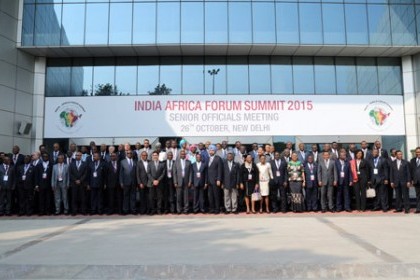 Courtesy: Wikipedia
Courtesy: Wikipedia
India's new intellectual property rights (IPR) policy attempts to address concerns of developed countries regarding India's patent regime, while also protecting public interest, especially that of generic drug producers. However, through this effort of a balancing act, India might have landed up pleasing neither the USTR or U.S. business and disappointing many in India's domestic industry and civil society.
 Courtesy: ustr.gov
Courtesy: ustr.gov
The Trans-Pacific Partnership has dropped strong Intellectual Property Rights regulations on India’s doorstep. The implications of these regulations could affect India’s own policies, as well as her global aspirations towards the potential Regional Comprehensive Economic Partnership.
 Courtesy: MEA
Courtesy: MEA
The U.S. is urging India to alter its IPR regime, and the potential impact on prices in the pharmaceuticals sector is of concern to African countries that depend on India for low-cost generic medicines. The recent India-Africa Forum Summit in New Delhi sought to address this issue, but it will be a challenge for India to balance competing pressures.
 Courtesy: Pixabay
Courtesy: Pixabay
Do the TPP and the proposed India-EU trade deal extend protection of IPR, delaying generic competition for life-saving drugs and keeping their prices high? While these and other possible implications for Indian consumers and pharma companies become clearer over time, India must robustly engage with the debate on trade deals and public interest




